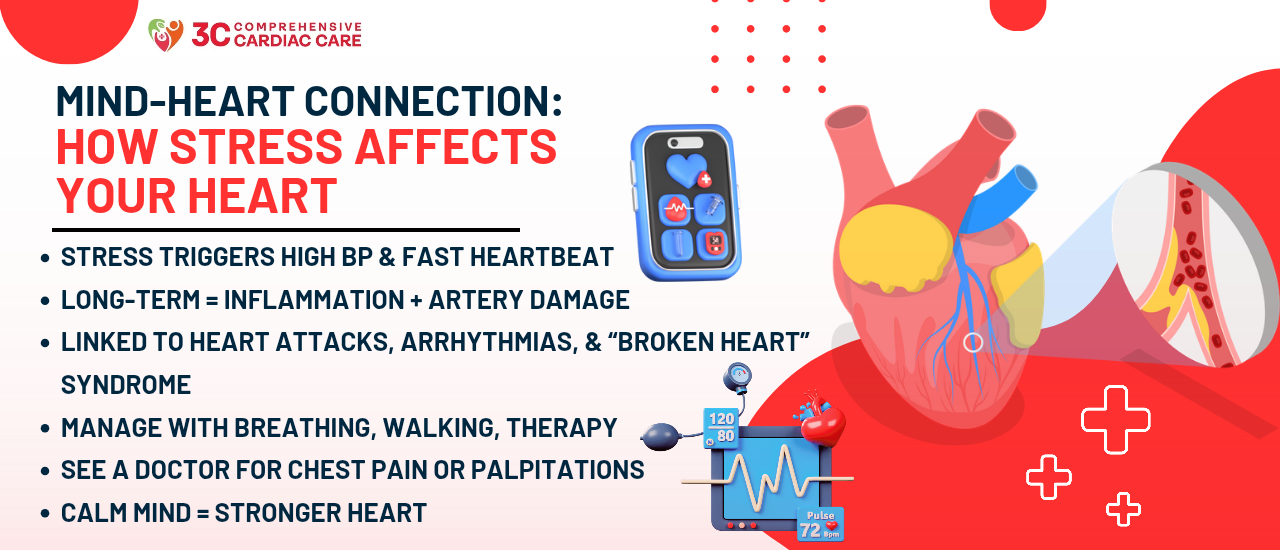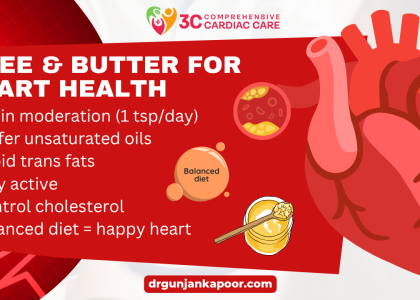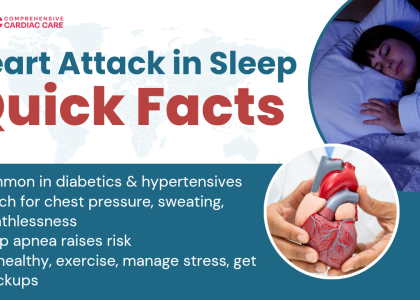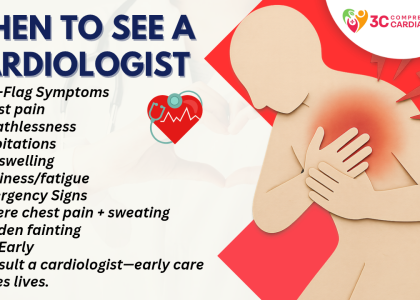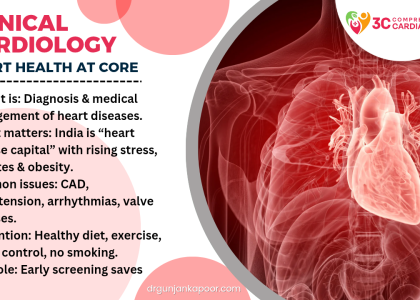❤️ Can Stress Really Cause Heart Problems?
Understanding the Mind-Heart Connection
We often say, “I’m heartbroken” or “That was heart-stopping!”—but these aren’t just emotional phrases. Science now proves that mental stress and heart health are deeply connected.
Chronic stress can literally damage your heart over time—making it more than just “in your head.”
Let’s explore how stress affects your heart, what conditions it triggers, and how to protect both your mind and heart.
What Happens to Your Heart When You’re Stressed?
When you’re under stress, your body activates the “fight or flight” response. This releases hormones like:
-
Adrenaline (raises heart rate & blood pressure)
-
Cortisol (increases blood sugar & inflammation)
Over time, these responses can cause:
-
High blood pressure
-
Irregular heartbeats (arrhythmias)
-
Narrowed arteries
-
Plaque buildup (atherosclerosis)
-
Higher risk of heart attacks and strokes
Chronic stress keeps your body in emergency mode—which your heart can’t sustain for long.
Heart Problems Linked to Stress
1️⃣ Hypertension (High BP)
Stress raises blood pressure temporarily—but constant stress keeps it elevated.
2️⃣ Heart Palpitations & Arrhythmias
Anxiety and panic can lead to a racing or skipped heartbeat.
3️⃣ Heart Attack (Myocardial Infarction)
Emotional stress can trigger a heart attack, especially in those with existing heart disease.
4️⃣ Broken Heart Syndrome (Takotsubo Cardiomyopathy)
A real condition where intense emotional shock mimics a heart attack.
5️⃣ Increased Risk of Clot Formation
Stress can make blood stickier, leading to clot-related complications.
Studies show people with high stress levels are twice as likely to develop heart disease.
The Stress-Inflammation-Heart Triangle
Chronic stress triggers inflammation, which damages artery linings and accelerates plaque formation.
This sets the stage for:
-
Artery narrowing
-
❌ Reduced blood flow
-
Blockages → Heart attack
Your emotions directly impact your cardiovascular system—a silent but deadly connection.
♂️ Managing Stress = Protecting Your Heart
You can’t always avoid stress—but you can control how your body responds.
✅ Science-Backed Stress-Relief Tactics:
-
Deep breathing, yoga, or meditation
-
♂️ Regular physical activity (30 mins/day)
-
Music, art, or hobbies you love
-
Talk to someone (therapy, friends, family)
-
Prioritize quality sleep
-
Cut caffeine, alcohol, & ultra-processed foods
-
️ Spiritual practices or prayer (if applicable)
Even 10 minutes/day of deep breathing reduces cortisol levels & slows your heart rate.
Should You See a Doctor?
Yes—especially if you experience:
-
Irregular heartbeat
-
Unexplained chest pain
-
Dizziness or breathlessness
-
Persistent fatigue
A cardiologist can assess if stress is affecting your heart and may recommend ECG, blood pressure monitoring, or stress tests.
Real Case: The Heart Attack That Wasn’t
Mrs. R, 44, came to the ER with chest pain after a family crisis. Her ECG and angiography were normal—diagnosed with stress-induced cardiomyopathy. With stress management and lifestyle changes, she fully recovered in weeks.
✨ Your emotional health is your heart health.
Final Takeaway
Stress doesn’t just affect your mood—it rewires your heart, slowly and silently. But here’s the good news:
Manage your mind, and your heart will thank you for life.
Don’t wait for chest pain to change your lifestyle. Start now. ♀️

